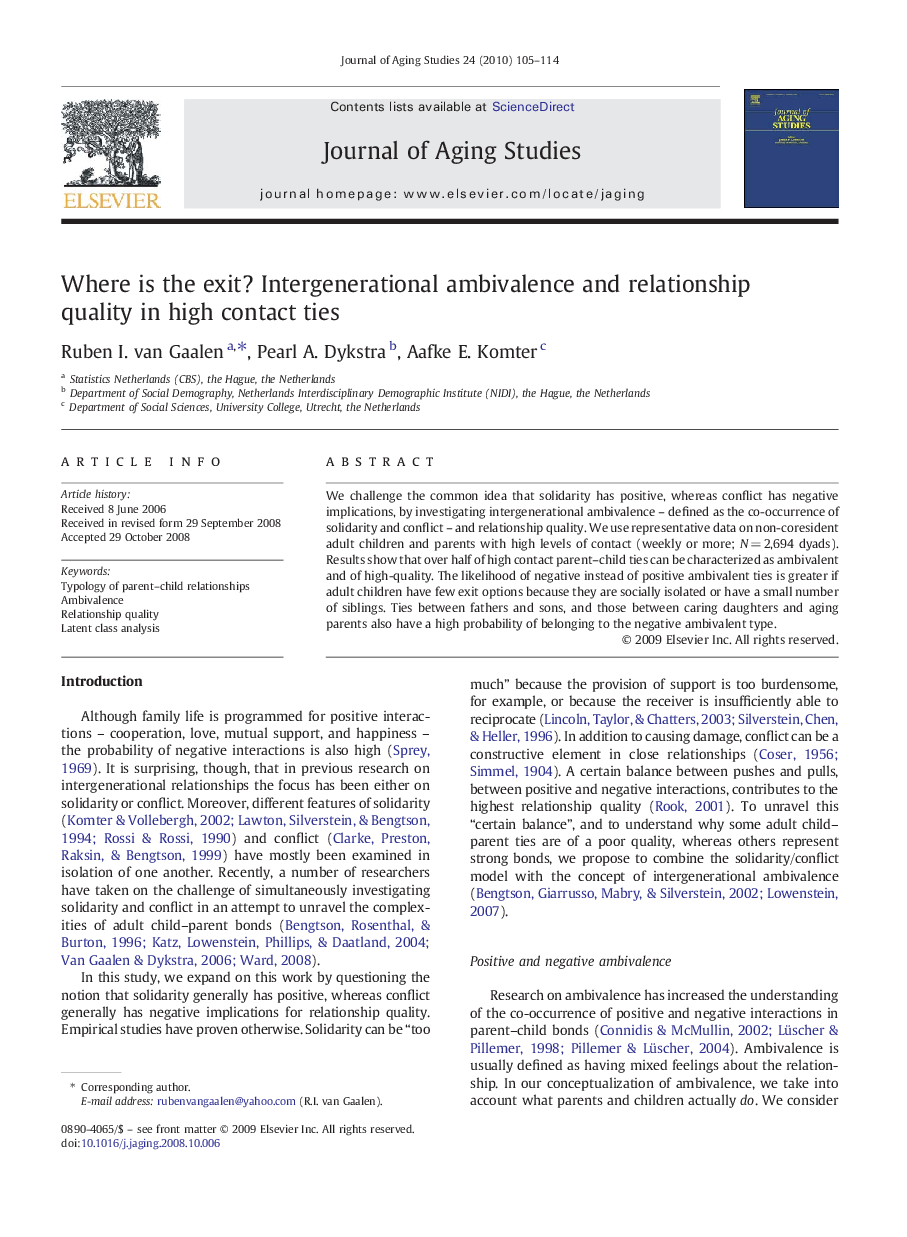| Article ID | Journal | Published Year | Pages | File Type |
|---|---|---|---|---|
| 1081985 | Journal of Aging Studies | 2010 | 10 Pages |
We challenge the common idea that solidarity has positive, whereas conflict has negative implications, by investigating intergenerational ambivalence – defined as the co-occurrence of solidarity and conflict – and relationship quality. We use representative data on non-coresident adult children and parents with high levels of contact (weekly or more; N = 2,694 dyads). Results show that over half of high contact parent–child ties can be characterized as ambivalent and of high-quality. The likelihood of negative instead of positive ambivalent ties is greater if adult children have few exit options because they are socially isolated or have a small number of siblings. Ties between fathers and sons, and those between caring daughters and aging parents also have a high probability of belonging to the negative ambivalent type.
